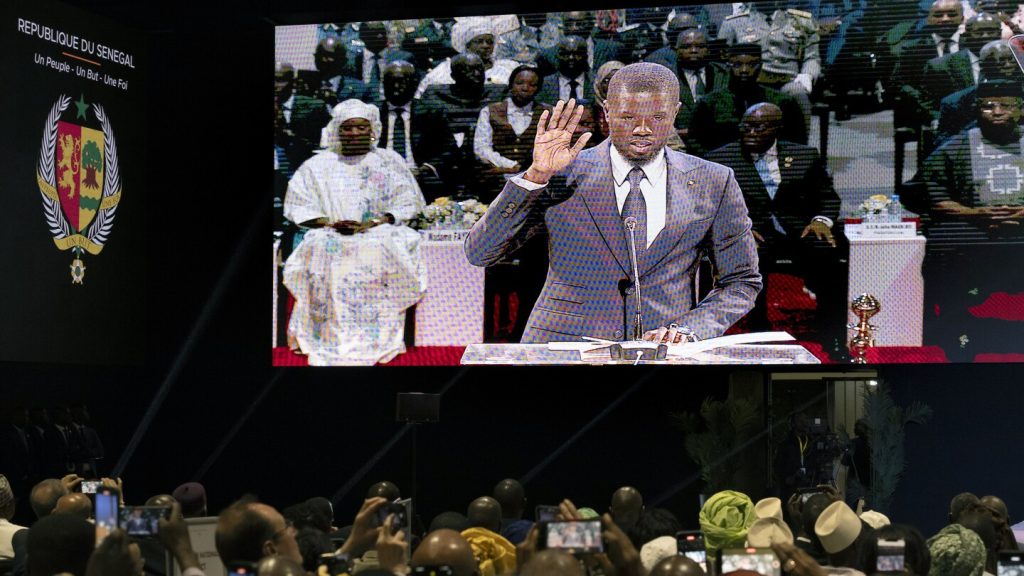Senegal has inaugurated Africa’s youngest elected leader, 44-year-old Bassirou Diomaye Faye, as president, marking a dramatic rise from prison to the palace within weeks. Ousmane Sonko, a popular opposition figure, was named as the new prime minister shortly after. The election tested Senegal’s status as a stable democracy in West Africa, with both Faye and Sonko being released from prison less than two weeks before the vote under a political amnesty by outgoing President Macky Sall. Their arrests had sparked protests and concerns about a potential third term for Sall, leading to dozens of deaths and over 1,000 arrests. In his first speech as president, Faye pledged to build a sovereign, just, and prosperous Senegal.
Faye, a former tax inspector, rode a wave of frustration among Senegal’s youth about the country’s direction and promises to tackle corruption. His election symbolizes a victory for democracy and the rule of law, according to supporters who endured loss during the protests. Unemployment rates are high in Senegal, worsened by global events like the war in Ukraine, which has driven up food and energy prices. The sentiment of disaffection with former colonial powers like France is growing in Senegal and other African countries. Faye has pledged to improve the management of natural resources and combat corruption, starting with a declaration of his assets before the election. His first challenge will be forming a government that reflects the desire for change.
The appointment of Sonko, who came third in the 2019 election, as prime minister signals a drive for transparency and sovereignty in Senegal. Sonko has faced legal battles and accusations, including a conviction of corrupting youth and a two-year prison sentence following rape charges in 2021. His supporters believe these legal issues were orchestrated to obstruct his candidacy. Both Faye and Sonko promise to deliver change and break with the past, emphasizing a commitment to building a new Senegal that prioritizes progress and democratic stability. Faye reassured that change would not compromise Senegal’s reputation as a stable democracy in a volatile region.
Senegal’s economic policies under Faye will be closely monitored, especially regarding natural resource management and investor relations. Despite recent oil and gas discoveries, the population is yet to see tangible benefits, raising concerns about equitable distribution and foreign investment implications. Faye aims to negotiate deals that benefit the country without deterring investors, ensuring sustainable economic growth and prosperity for Senegal. The new president highlighted the importance of preserving peace and national cohesion while implementing reforms to build a better future for the Senegalese population.
The political transition in Senegal reflects a broader trend in Africa where the youth are demanding systemic change and accountability from their leaders. Faye’s rapid rise from obscurity to the presidency showcases the power of grassroots movements and the desire for a new generation of leaders. With promises to combat corruption, improve governance, and prioritize the needs of the people, Faye and Sonko represent a shift towards greater transparency and accountability in Senegal. As they navigate the challenges of governing a country facing economic, social, and political pressures, their leadership will be scrutinized by both domestic and international observers for its impact on democracy and development in Senegal.


